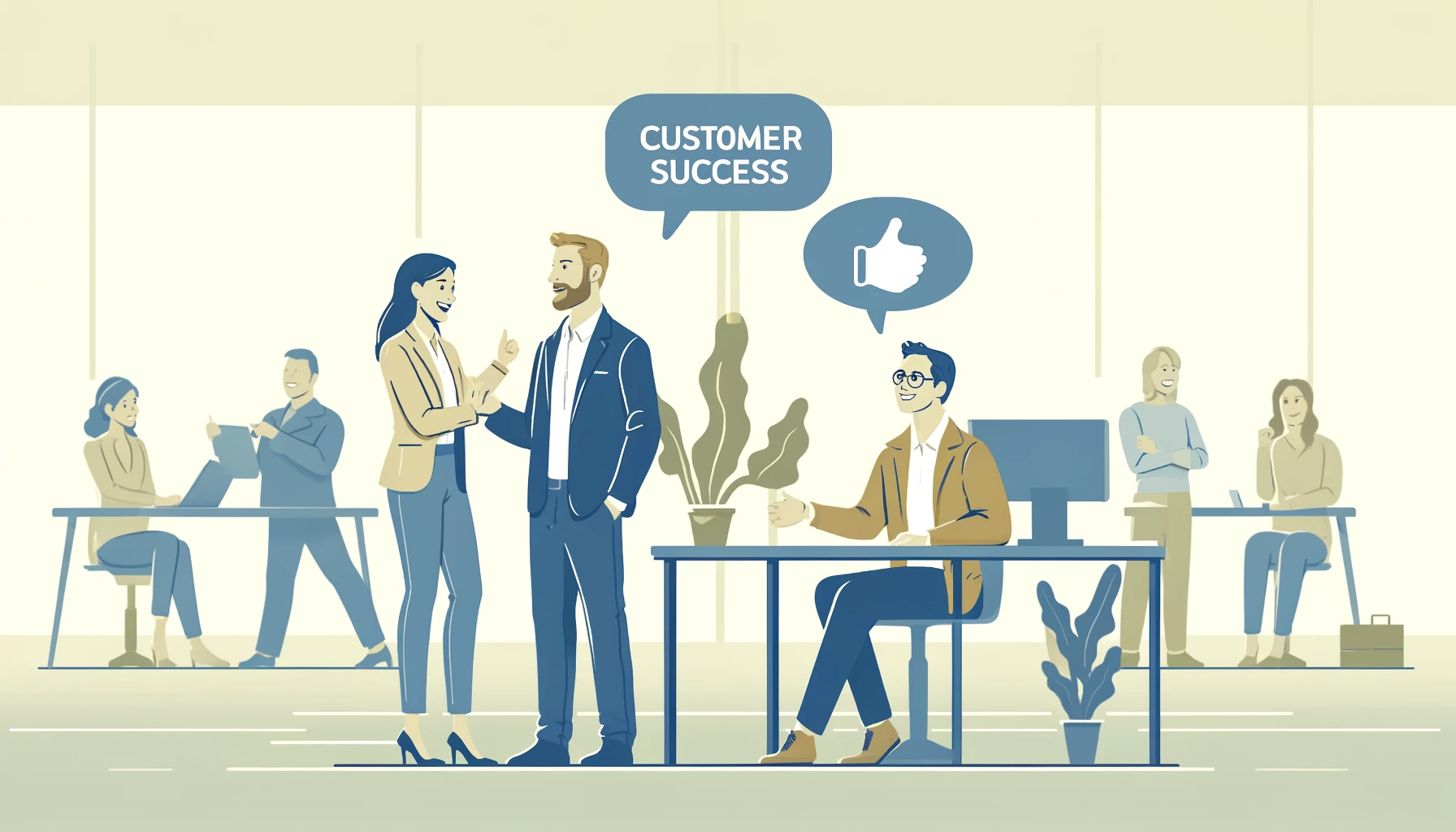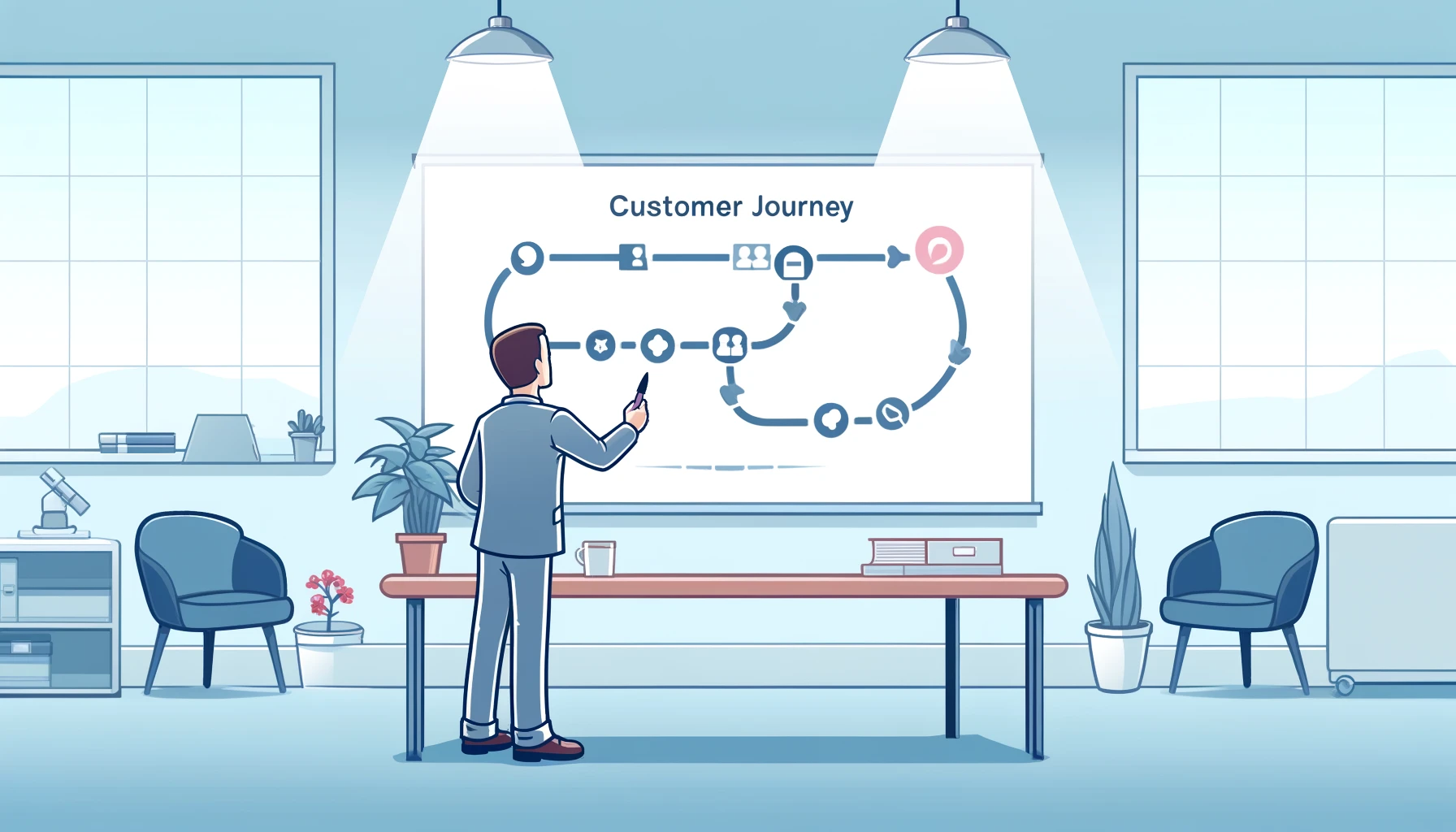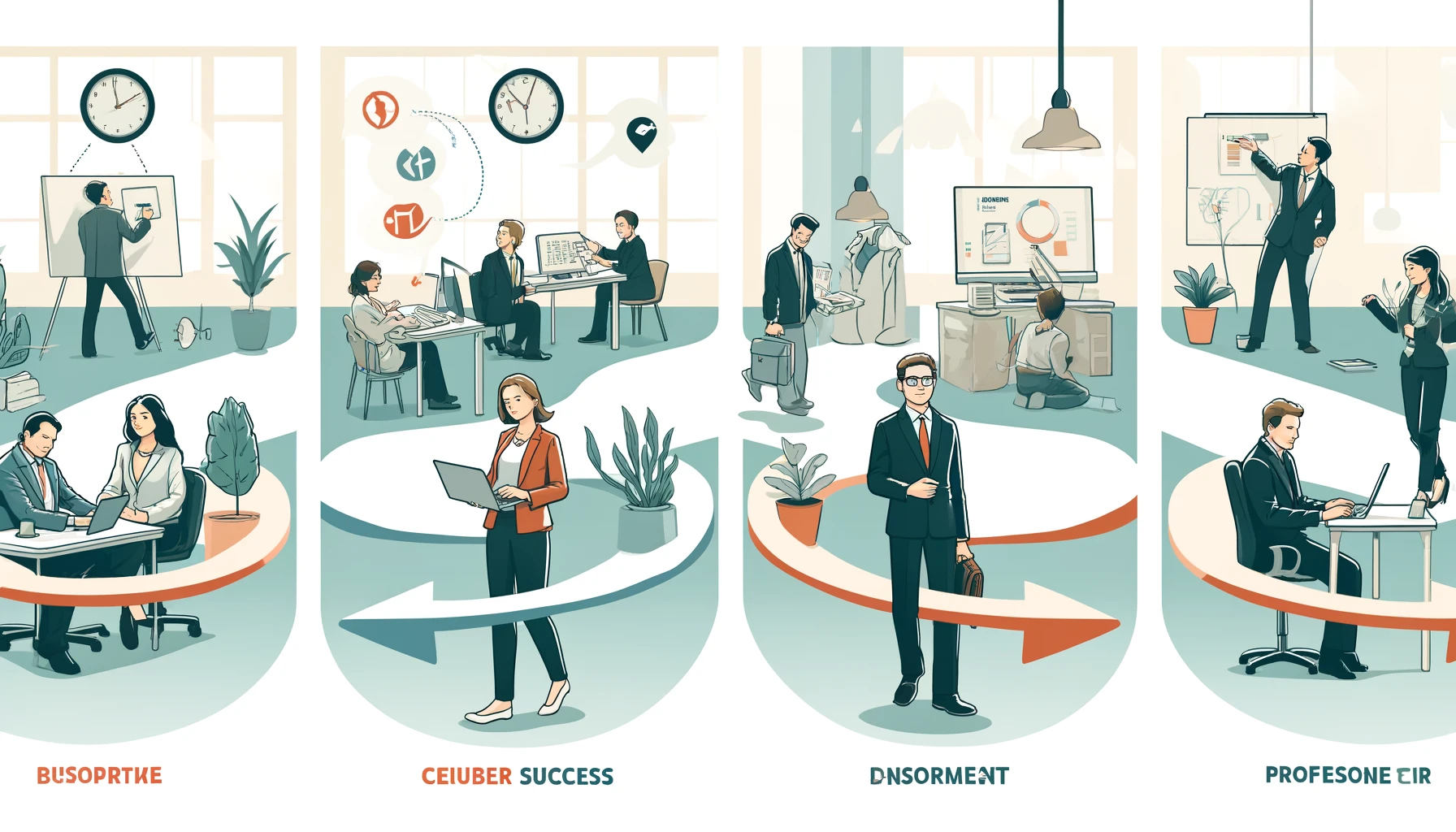Is Customer Success Manager Better Than Project Manager?

Explore the roles of Customer Success Managers vs Project Managers to determine which leadership path aligns with your career goals.
Exploring the Unique Value of Customer Success Managers Over Project Managers
In the dynamic realm of business operations, the debate on whether a Customer Success Manager (CSM) holds more value than a Project Manager (PM) often arises. A CSM’s primary focus is on nurturing long-term relationships with customers, ensuring their continued satisfaction and success with the products or services offered. This contrasts with the PM’s role, which centers on the execution of specific projects within set timelines and budgets.
Understanding the distinct differences in their roles, a CSM is proactive in anticipating customer needs and offering solutions before issues arise, whereas a PM typically adopts a reactive approach to problem-solving within the project scope. Training for CSMs often includes deep dives into customer engagement strategies and product knowledge, while PMs focus on project management methodologies and resource allocation.

The goals of a CSM are measured by customer retention rates and satisfaction scores, showcasing a direct impact on company growth. In contrast, a PM’s success is quantified by the timely delivery of projects and adherence to budget constraints. Both roles require managerial finesse, but a CSM is typically more involved in cross-functional collaboration to enhance customer experience, which is essential in today’s market where customer loyalty is paramount.
| Aspect | CSM | PM |
|---|---|---|
| Customer Relationship Focus | ✓ | x |
| Long-term Strategic Involvement | ✓ | x |
| Reactive Problem Solving | x | ✓ |
| Project Delivery and Budget Focus | x | ✓ |
| Training in Engagement Strategies | ✓ | x |
In essence, the unique value of a CSM lies in their ability to drive customer-centric growth, which can be a key differentiator in a competitive marketplace. The integration of roles like CSMs within ozma’s structure emphasizes the importance of customer success as a core business strategy.

This section has elucidated the distinctive attributes and contributions of CSMs compared to PMs, highlighting the former’s strategic role in fostering customer loyalty and driving revenue. As the business landscape evolves, the value of a dedicated CSM becomes increasingly clear, marking a pivotal shift towards customer-centric business models.
Unveiling the Core Functions of a Customer Success Manager
A Customer Success Manager (CSM) plays a pivotal role in the growth and sustainability of a company. Unlike Project Managers, who are primarily concerned with the internal success of project initiatives, CSMs are the champions of customer advocacy, focusing on the external success of clients and their experience with a company’s products or services. Their core functions revolve around establishing and nurturing long-term customer relationships, which directly contribute to customer loyalty and retention.
At the heart of a CSM’s responsibilities is the ability to understand and anticipate customer needs, ensuring that they receive tailored guidance and support throughout their entire journey. By adopting a proactive approach, they identify potential issues before they escalate and work closely with customers to strategize on achieving their desired outcomes. This customer-first mindset is what sets CSMs apart and is a key driver in establishing a strong, positive reputation for the business in the market.

Key Responsibilities of a CSM:
- Onboarding and Education: Seamlessly integrating customers with products or services.
- Customer Health Monitoring: Regularly assessing customer usage and satisfaction to preemptively address concerns.
- Strategic Consultation: Collaborating with customers to align product features with their business goals.
- Advocacy and Feedback Loop: Serving as the voice of the customer within the company and funneling feedback to relevant departments.
Training for CSMs is continuous, focusing on enhancing their skills in communication, strategic planning, and product expertise. This ensures they are well-equipped to foster meaningful relationships that go beyond mere transactions, leading to higher customer lifetime value. The success of a CSM is measured not just by customer retention rates but also by the positive impact they have on the overall customer experience.
In an organization like ozma, the role of a CSM is integral to the company’s structure, emphasizing the significance of customer success as a central pillar of business strategy. The proactive, customer-centric approach of a CSM is instrumental in not only retaining customers but also turning them into vocal advocates for the brand.
By understanding the comprehensive role of a CSM, companies can better appreciate how their contributions are instrumental in shaping a business that thrives on customer success. It is clear that the CSM’s role is not just different but also crucial in ensuring that customer satisfaction translates into tangible business outcomes.

This section has provided a glimpse into the multifaceted role of a Customer Success Manager, emphasizing their importance in fostering a customer-centric culture that drives sustained business growth. Their strategic and proactive efforts in managing customer relationships are indispensable, particularly in a competitive environment where customer loyalty is a key differentiator.
Navigating the Role and Impact of Project Managers
Project Managers (PMs) are the backbone of any project-driven organization, holding a pivotal role in steering projects to successful completion. Unlike Customer Success Managers (CSMs), who primarily ensure client satisfaction post-sale, PMs are focused on the intricate details of project planning, execution, and delivery. They are the maestros orchestrating various elements, from resource allocation to timeline management, ensuring that projects align with strategic business objectives.
Core Responsibilities of a PM:
- Project Planning: Developing detailed project plans that outline scope, resources, and timelines.
- Team Leadership: Guiding and motivating cross-functional teams to achieve project goals.
- Risk Management: Proactively identifying and mitigating project risks to avoid delays or cost overruns.
- Stakeholder Communication: Keeping all parties informed and aligned throughout the project lifecycle.
Training for PMs is centered on methodologies like Agile, Scrum, or Waterfall, equipping them with the tools to manage complex projects efficiently. Their success metrics revolve around delivering projects on time, within budget, and to the quality standards expected by stakeholders.
The longevity of a PM’s involvement with customers may be shorter than that of a CSM, but their impact on customer satisfaction is significant. By delivering projects successfully, they lay the foundation for a positive customer relationship that CSMs can build upon.

In organizations like ozma, PMs work in tandem with CSMs to ensure that projects not only meet but exceed customer expectations. This collaborative effort between the roles underscores the importance of integrating project delivery with ongoing customer success strategies.
Understanding the role and impact of Project Managers highlights the complementary nature of their skills alongside CSMs. While the question of “is customer success manager better than project manager” may arise, the reality is that both roles are essential, each contributing uniquely to the longevity and prosperity of the business.

In conclusion, PMs are essential for driving project success, which in turn fosters a positive environment for customer success. By acknowledging the distinct yet interdependent roles of PMs and CSMs, businesses can create a cohesive strategy that ensures both project efficiency and customer satisfaction.
Unraveling the Long-Term Customer Engagement Strategies
Long-term customer engagement is the cornerstone of a successful business, and it’s where the role of a Customer Success Manager (CSM) truly shines over a Project Manager (PM). While a PM’s success is project-based, a CSM’s effectiveness is reflected in the sustained growth and satisfaction of the customer base. This strategic focus on customer relationships is what differentiates a CSM in the quest for business longevity.
Strategies for Long-Term Customer Engagement:
- Personalized Communication: Tailoring interactions to meet the unique needs of each customer.
- Continuous Value Delivery: Ensuring customers consistently receive benefits from products or services.
- Customer Education: Providing resources and training to help customers maximize the use of products.
CSMs employ a proactive approach, anticipating customer needs and fostering a partnership that evolves alongside the customer’s growth. They are equipped with extensive training in customer lifecycle management and engagement tools, which are pivotal in crafting a seamless customer journey.

The collaborative efforts of CSMs within an organization like ozma underscore the adaptability and foresight required to maintain and elevate the customer experience. Their role extends beyond immediate problem-solving to include customer advocacy and strategic advisory, both of which are key in nurturing a loyal customer base.
| Engagement Strategy | Benefit |
|---|---|
| Regular Check-Ins | Builds trust and opens communication channels |
| Customer Feedback Loops | Enables continuous improvement and shows customers they are heard |
| Community Building | Encourages peer-to-peer support and loyalty |
In the end, the measure of success for CSMs lies in the longevity of customer relationships and the positive impact on the company’s recurring revenue. Through understanding the customer’s business goals and aligning them with the service offerings, CSMs ensure that satisfaction is not a one-time event but a journey of mutual growth.

By looking into these long-term customer engagement strategies, it becomes evident that the proactive, customer-centric approach of a CSM is indispensable. It not only supports the idea that a CSM might be considered more valuable than a PM in certain aspects but also highlights the unique contributions each role brings to the table.
Comparing the Growth Pathways: CSMs and PMs in Professional Development
The professional development of Customer Success Managers (CSMs) and Project Managers (PMs) is a journey marked by distinct growth pathways, reflecting the unique demands and contributions of each role. While CSMs are continually refining their skills in relationship building and customer advocacy, PMs are mastering the art of project execution and team leadership.
Professional Development for CSMs:
- Customer-Centric Training: Emphasizes understanding customer behavior, enhancing product knowledge, and mastering customer engagement tools.
- Soft Skills Enhancement: Focuses on communication, empathy, and problem-solving to cultivate strong customer relationships.
- Certifications: Opportunities to gain credentials in customer success platforms and methodologies.
Professional Development for PMs:
- Methodology Mastery: Training in project management frameworks such as Agile, PMP, or PRINCE2.
- Technical Skill Advancement: Developing expertise in project management software and related technologies.
- Leadership Development: Courses and workshops aimed at strengthening team management and stakeholder communication.
The trajectory of both CSMs and PMs involves continuous learning and adaptation to new challenges. For CSMs, the measure of success is often linked to customer retention and satisfaction metrics, driving them to become experts in customer lifecycle management. PMs, on the other hand, aim for the successful delivery of projects, which prompts a focus on efficiency, risk mitigation, and resource management.

| Professional Development Focus | CSM | PM |
|---|---|---|
| Customer Relationship Building | ✓ | x |
| Project Management Methodologies | x | ✓ |
| Leadership and Communication | ✓ | ✓ |
| Technical Software Proficiency | x | ✓ |
| Customer Advocacy and Retention | ✓ | x |
In organizations like Ozma, the growth of CSMs and PMs is seen as a strategic investment. By fostering their unique skill sets, the company ensures that both customer success and project delivery receive the specialized attention they deserve. The collaboration between CSMs and PMs within such a structure is pivotal, as it allows for a harmonious balance between maintaining customer satisfaction and achieving project objectives.

As we dive into the professional development of these roles, it is clear that both paths offer rewarding opportunities for growth. Whether through proactive customer engagement or meticulous project oversight, CSMs and PMs are equipped to navigate their respective domains with expertise, contributing significantly to the success of their organizations.
FAQs
What is the role of a Customer Success Manager?
A Customer Success Manager focuses on building long-term customer relationships, ensuring client satisfaction, and facilitating product adoption.
How does a Project Manager's role differ from a Customer Success Manager?
A Project Manager oversees the execution of projects, managing timelines, resources, and deliverables, unlike the relationship-centric role of a Customer Success Manager.
Can a Project Manager transition to a Customer Success Manager role?
Yes, with the right skills in client relationship management and a focus on customer success, a Project Manager can transition to this role.
What skills are essential for a Customer Success Manager?
Key skills include communication, empathy, strategic thinking, and the ability to use customer success software and analytics tools.
Which role is more crucial for business growth, Customer Success Manager or Project Manager?
Both roles are vital for different aspects of business growth; Customer Success Managers for retention and Project Managers for execution.





